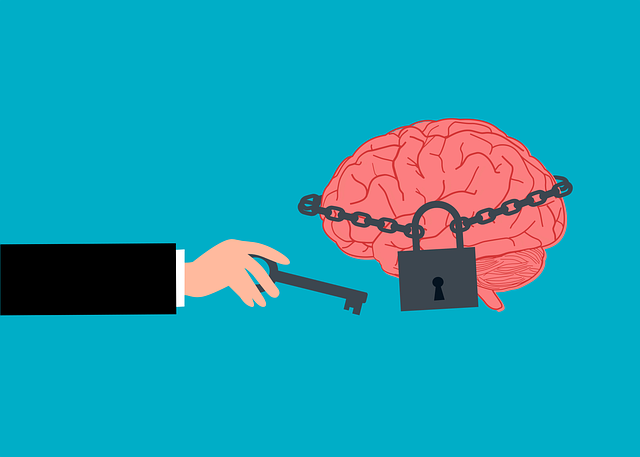Depression prevention and management in Littleton focus on specialized therapy and workshops addressing parents' and adolescents' mental well-being. Programs like Littleton Parenting Skills Therapy utilize evidence-based practices, such as Mind Over Matter principles, to reduce stigma, improve self-esteem, and teach healthy coping mechanisms. Through family communication, conflict resolution, and promoting compassion cultivation, these initiatives foster resilience and early intervention for better long-term outcomes. The holistic approaches include creative outlets, mindfulness practices, physical activity, and accessible knowledge from the Mental Wellness Podcast Series, empowering individuals to manage stress and regulate emotions effectively.
Depression is a prevalent yet complex mental health challenge. This article explores practical prevention strategies for individuals seeking to safeguard their well-being. From understanding depression’s subtle signs to implementing evidence-based practices, we guide you through various approaches. Discover the power of Littleton Parenting Skills Therapy in fostering resilience and healthy coping mechanisms. Learn how open family communication and lifestyle adjustments, including nutrition, exercise, and sleep, play pivotal roles in preventing depressive episodes.
- Understanding Depression: Recognizing Signs and Symptoms
- The Role of Littleton Parenting Skills Therapy in Prevention
- Fostering Resilience: Building Coping Mechanisms for Teens
- Promoting Open Communication: Family Conversations That Matter
- Lifestyle Changes: Nutrition, Exercise, and Sleep for Mental Well-being
Understanding Depression: Recognizing Signs and Symptoms

Depression is a common yet serious mental health condition that can significantly impact an individual’s daily life and well-being. Recognizing the signs and symptoms early on is crucial in preventing and managing this illness. Often characterized by persistent feelings of sadness, hopelessness, and loss of interest, depression can manifest in various ways. Individuals may experience changes in appetite, sleep disturbances, fatigue, difficulty concentrating, or even thoughts of self-harm.
In Littleton, parents seeking support for their children’s mental health can benefit from specialized therapy and skills-building workshops. These initiatives focus on empowering both parents and children with the tools to navigate challenging emotions and behaviors. Through evidence-based practices, such as Mind Over Matter principles, therapists aim to reduce the stigma surrounding mental illness while fostering self-esteem improvement and healthy coping mechanisms. By understanding these signs, individuals can initiate early intervention and seek appropriate professional help, ensuring a brighter outlook for their overall mental well-being.
The Role of Littleton Parenting Skills Therapy in Prevention

Littleton Parenting Skills Therapy plays a significant role in depression prevention by equipping individuals with essential coping mechanisms and emotional healing processes. This form of therapy focuses on enhancing communication, resolving conflicts, and fostering healthy relationships within families. By teaching effective parenting strategies, it helps parents manage stress, resolve issues, and create supportive environments that promote mental well-being among their children. Such interventions are crucial in breaking the cycle of depression, especially when implemented early.
In today’s world, where public awareness campaigns development is vital for mental health initiatives, Littleton Parenting Skills Therapy contributes to a broader strategy. It not only addresses individual needs but also raises awareness about the importance of compassion cultivation practices in prevention. Through group discussions and tailored exercises, therapy participants gain insights into managing emotions, cultivating empathy, and building resilience—all of which are key elements in maintaining good mental health and averting depressive episodes.
Fostering Resilience: Building Coping Mechanisms for Teens

Adolescence is a crucial period for developing coping mechanisms and fostering resilience, which are vital tools in preventing depression. Littleton Parenting Skills Therapy offers valuable resources to guide teens and their parents through this journey. By participating in activities that promote emotional awareness and healthy expression, young individuals can learn to navigate life’s challenges more effectively. This may involve exploring creative outlets, practicing mindfulness techniques, or engaging in physical exercise, which are all proven strategies for enhancing mental wellness.
The Mental Wellness Podcast Series Production provides a platform for sharing evidence-based practices and personal stories, offering teens and their families accessible resources for improving mood management. Additionally, trauma support services play a significant role in building resilience by addressing any underlying issues that could contribute to depression. Through these comprehensive approaches, individuals can develop the skills needed to cope with stress, regulate emotions, and maintain overall well-being.
Promoting Open Communication: Family Conversations That Matter

Promoting open communication within families is a powerful tool in preventing depression and fostering emotional well-being. In Littleton Parenting Skills Therapy sessions, families learn to create safe spaces for honest conversations, addressing concerns, and sharing feelings without fear of judgment. This practice encourages each member to express their emotions, helping to identify potential triggers early on. By discussing everyday experiences, challenges, and victories, families strengthen their bonds and develop a deeper understanding of one another’s needs.
The Mind Over Matter Principles taught in these workshops emphasize the impact of our thoughts on mental health. Encouraging open dialogue allows family members to challenge negative thought patterns and replace them with more positive, realistic perspectives. This proactive approach to emotional healing enables families to navigate life’s stresses together, fostering resilience and a supportive environment where everyone feels heard and valued. Additionally, regular family conversations can serve as an early warning system for any changes in behavior or mood, prompting timely interventions and support from local organizations like the Stress Management Workshops Organization.
Lifestyle Changes: Nutrition, Exercise, and Sleep for Mental Well-being

Adopting a healthy lifestyle is a powerful tool in preventing and managing depression. Nutrition plays a significant role; ensuring your diet is rich in fruits, vegetables, whole grains, and lean proteins can boost your mood and energy levels. Omega-3 fatty acids, found in fish like salmon, are known to support brain health and cognitive function, which are essential for maintaining mental well-being.
Regular exercise is another key strategy. Physical activity releases endorphins, often referred to as ‘feel-good’ hormones, which can alleviate symptoms of depression. Whether it’s a brisk walk in the park or joining a Littleton Parenting Skills Therapy group that encourages mindfulness meditation, finding an activity you enjoy and making it a part of your routine can significantly impact your mental health. Additionally, prioritizing quality sleep is vital; aiming for 7-9 hours each night allows your body and mind to rest and recharge, which is essential for maintaining a positive mindset and overall mental resilience, even with the implementation of a community outreach program.
Depression prevention is a holistic approach that involves understanding the signs, fostering resilience in teens, encouraging open family communication, and adopting healthy lifestyle changes. As highlighted by various strategies discussed, including the effectiveness of Littleton Parenting Skills Therapy, proactive measures can significantly reduce the risk of depression. By recognizing early indicators, implementing coping mechanisms, nurturing open dialogue, and making informed lifestyle choices, individuals and families can create a supportive environment that promotes mental well-being.













